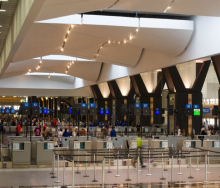The Tourism Equity Fund (TEF), which was launched by the Department of Tourism in January, was met with some criticism from the industry’s private sector for both its perceived inability to transform the industry and for the timing of its launch in the midst of a tourism crisis. Presenting to the Tourism Portfolio Committee last month, ceo of the Tourism Business Council of South Africa (TBCSA), Tshifhiwa Tshivhengwa, provided feedback to Parliament about the TBCSA’s views on the fund, in response to Parliament’s queries about transformation in the industry.
“The TEF is welcomed by the TBCSA as it will go a long way in assisting those who want to make acquisitions within the tourism space. It is important to note that the grant component of the TEF is up to R20m per single applicant. Government is putting R180m per year for the next three years into the grant part of the TEF. The rest of the money comes through the
Small Enterprise Finance Agency (Sefa) where the normal applications for loans still apply. The only difference here is that the fund is targeted at transformation, and the companies have to be 51% black owned. When one makes the application, it is not a matter of things being automatic; there has to be a business case, it still has to be viable, and it still has to be something that is bankable in terms of the return on investment from the loan point of view. These loans are still repayable, although Sefa may grant some payment holidays,” said Tshifhiwa.
He said the R180m being invested into the fund was not a lot of money to transform an industry worth roughly R400bn. He pointed out that the minimum application for the fund was set at R10m.
“As much as the TBCSA welcomes this, there are lots of SMMEs that are below R10m in their turnover, and that require less than R10m for a loan application. As the TBCSA looks at the uptake of this fund, it will be important to say, ‘Are we getting a lot of people applying for R10m-plus? Or do the majority of people want less than R10m?’. That needs to be looked at, so that the TBCSA is agile in its ability to assist SMMEs from that point of view,” explained Tshifhiwa.
He stressed that it was vitally important that anyone who was to receive this money had to be entering an industry that was still operational. “For every entrepreneur that applies, it is important to make sure that they can practise what they want to practise, make an income, and see their dreams come true. If South Africa does not have a thriving industry and we invest this money, we will be back to square one a few years down the line. We need to protect demand for South African tourism products in order to protect our tourism suppliers.”
Tshifhiwa added that the R200m COVID-19 Tourism Relief Fund for SMME tourism entities (approved in line with B-BBEE criteria to promote transformation) had helped to keep many tourism businesses afloat during 2020. He pointed out that each SMME that was approved for the grant received R50 000 per business. In total, 4 000 tourism entities benefited from the fund. Although there were many that qualified, the fund was not enough to cover everyone, said Tshifhiwa.
He reiterated that the biggest issue at present for the industry and for transformation was the government loan guarantee scheme.
“When the President spoke at Sona, he spoke of about R18,5bn being committed. This means that there is money sitting there that the industry cannot access, especially the SMMEs. This has been seen from the tourism side of things, when the TBCSA was discussing these issues at Nedlac with the Banking Association of South Africa as well as Treasury, and advocating that the social partners want this fund to be reviewed so that it can have the impact that it is designed to have.
“If the government loan guarantee scheme is not designed in a way that favours tourism businesses, and if it looks at tourism businesses differently to other sectors, then the industry will continue to have problems,” he said.
Tshifhiwa supported the idea of having a separate fund, geared for tourism businesses, that could look at the industry differently and could support small, medium, independently owned, and listed tourism businesses.















